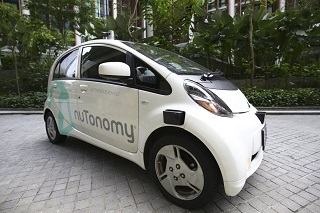From Guest Blogger Christopher Austin: Energy-Efficient Cars–Which Automotive Technology Is Most Likely To Replace the Gasoline Engine?
Today’s economies are changing at a fast pace, and most of the trends are driven by advanced technology. The way players respond to these advances will influence customer behaviours, drive transformations, and develop partnerships. Increased automation, digitization, and brand-new business models have already revamped other industries. The automotive industry is no exception. Today’s energy-efficient cars are more powerful than ever before, and increasingly more consumers are thinking about going green to help save the environment. However, does this mean eco-friendly cars will surpass gas-powered cars? They might.
High-performance EVs are taking the lead
Ten years ago, electric vehicles were expensive and not that high-performant. Those that could afford to buy them, only did it because it was trendy. Things have changed due to advanced, and right now increasingly more car manufacturers are producing exceptional EVs. Specialists argue that within 5 years, electric vehicles will cost much less than most gas-powered cars in the US. Soon enough, there will be a “war” between gas and electricity as far as cars are concerned. We’ve been told over and over again that if you want to buy a fast car, you need a car with a powerful gas engine. Not anymore. Tesla and Porsche are proving us wrong. They’ve recently manufactured hybrids and electric vehicles that run just as fast.
Fast and conveniently-priced EVs
Rumour has it that electric vehicles will end up costing 10 times less that vehicles running on internal combustion engines. That might happen considering electrons are easier to move around than diesel and petrol. Solar-powered charging stations might even deliver re-fills at 0 marginal costs. Maintenance costs will also go down. For example, an internal combustion engines features over 2,000 moving parts; an electric vehicle comes with fewer than 20. That being said it’s crystal clear that maintenance might be cheaper on an electric car than on a gas-powered one.
A car’s dynamics is changing
When digital cameras emerged, disrupted film cameras were gone for good. The same thing might happen with cars. Energy-efficient cars are becoming more powerful, cheaper, faster, and more high-performant than regular gas-powered vehicles. Both Tesla and Porsche are living proof that the future is electric in terms of car manufacturing. The process of making one is digitizing, and with the help of technology, eco-friendly cars might go mainstream in less than 20 years.
Porsche and Tesla are not the only two companies that see potential in EVs. Ford plans on investing $4.5 billion in manufacturing EVs too. Their goal is not necessarily to overcome the competition, but to become a more “mobile company.” GM is also considering paying more attention to this “inevitable” trend. Apart from wanting to invest more in “mobility”, GM aims at raising awareness in autonomous cars with integrated smart technologies.
Computer-drive energy-efficient cars on the rise
Car manufacturing is relocating from internal combustion engine production to electric engines led by computers. EVs are basically “smart computer on wheels”, and companies will soon start to offer free chargers to avid buyers. Slowly but stead, the auto industry is reaching zero marginal costs. Customers will be fond of the change, because rather than buy a gas-power vehicle and pay for fuel, they might just be more willing to buy an electric and not pay for fuel.
Why aren’t more people buying energy-efficient cars?
The benefits of energy-efficient cars are numerous. They’re great because drivers won’t have to pay for gas anymore, and recharging has become extremely easy. And yet, for some reason people are not buying them. Electric cars are struggling because they come a high-cost. The average consumer with an annual income of $30,000 can’t afford an electric.
The good news is, we have technology to help us out. Car manufacturers have already started to make themselves heard. They’ve started convincing the population that investing in an EV is more convenient than buying a traditional car running on gasoline. On top of that, EVs have pioneering built-in technology, a feature that buyers will love.
Don’t let yourself dragged down by the rumours. Energy-efficient cars feature performance parts that gas-powered cars only dream of. They might represent the future, and we hope to live long enough to see EVs save the planet.


Probably electric cars will become more common. However, there are still reasons not to buy them.
Let us suppose that I wanted to make a trip from here in Albuquerque, NM, to Santa Fe, and return a couple hours later after running a few errands in Santa Fe. The distance is about 64 miles. Round trip would be 128 miles. Additional driving in Santa Fe might be perhaps 15 miles, for a total distance of 143 miles. Most EVs lack the range to make that possible. Although it would be possible to rent a fossil-fueld car for the trip, that that would be a significant nuisance.
Even so, as a second car, the limited range of an EV might not be a problem, but it would be a problem for people with only one car. Thus, the limited range of EVs will limit their sales until the range increases or until it becomes possible to recharge them in only a few minutes.